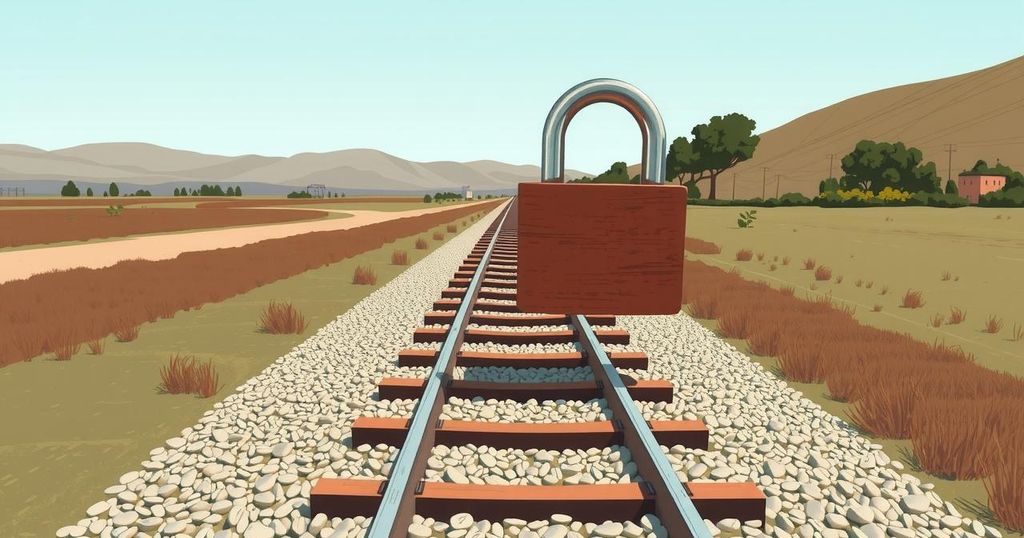ArcelorMittal Threatens Legal Action Amid Liberia’s Push for Multiuser Rail Access

ArcelorMittal Liberia (AML) threatens legal action against the Government of Liberia (GOL) over multiuser rail access for Ivanhoe Atlantic, claiming it violates their Mineral Development Agreement. The GOL remains firm in establishing a multiuser rail system to boost competition and revenue, supported by a legal opinion affirming their rights. With public sentiment favoring this shift, the future of Liberia’s railway usage is at a critical juncture.
ArcelorMittal Liberia (AML) has formally threatened legal action against the Government of Liberia (GOL) over a proposed agreement that would allow Ivanhoe Atlantic access to the Yekepa-Buchanan railway. AML’s CEO, Michiel van der Merwe, expressed that this plan violates their existing Mineral Development Agreement (MDA). The government aims to implement Executive Order 136, which seeks to establish a multiuser rail system, thus ending AML’s current monopoly before the MDA expiration in 2030.
AML contends that the GOL’s negotiations with Ivanhoe Atlantic conflict with its legal rights under the MDA. The company claims that permitting Ivanhoe to allocate 5 million tonnes per annum of rail capacity diminishes AML’s operational ability. Furthermore, AML argues that Ivanhoe’s potential expansion encroaches on its right to expand capacity while also challenging the government’s plan to set up an independent rail operator prior to 2030.
The letter sent by AML clearly states that if the GOL moves forward with the proposed deal with Ivanhoe Atlantic, it would result in legal repercussions. AML warns the GOL that their actions represent a breach of the MDA, promising to explore all legal remedies available under Liberian law. An insider from the GOL asserted their determination to make decisions based on national interests, irrespective of AML’s threats.
Contrarily, the government’s resolve is supported by a legal opinion from the former Minister of Justice, Cllr. Frank Musah Dean, who affirmed that granting Ivanhoe access does not breach the MDA. Cllr. Dean highlighted that the MDA allows for third-party access, facilitating a multiuser rail system. This indicates the Liberian government’s authority in negotiating third-party access without infringing on AML’s rights.
Historical context plays a significant role in this dispute; the Liberian National Legislature cited public discussions in rejecting the renewal of the AML MDA in 2022. Experts assert that AML’s monopoly has curtailed the nation’s economic development, as multiple mining entities could utilize the railway, potentially driving billions in revenue through access fees and taxes.
The government has laid out steps to implement the multiuser rail system, including establishing standards and selecting an independent operator. In contrast, Ivanhoe Atlantic is poised to begin exporting smaller quantities of iron ore while anticipating future expansions. The decision AML faces is whether to challenge the new framework or cooperate, with public sentiment favoring the multiuser rail policy strongly supporting the government’s approach.
The dispute between ArcelorMittal Liberia and the Government of Liberia over rail access highlights critical issues of economic sovereignty and legal rights. The GOL is steadfast in its plan to implement a multiuser rail system that aims to foster competition and revenue generation for Liberia. Despite AML’s threats to challenge the government’s actions legally, legal precedent and public support suggest that the government is operating within its authority. Therefore, the upcoming decisions are crucial for both AML and the future of Liberia’s economic landscape.
Original Source: www.liberianobserver.com








